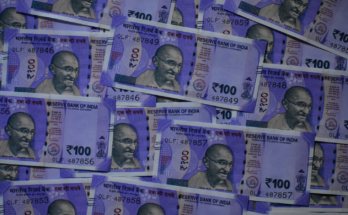Mehak Majeed tells of the race against expectations that female Indian academics must run.
As an economist at a Kashmir-based university in India, I have experienced first hand the cost of being a female academic in India. And the past year has been the most challenging of my life.
Despite maternity leave being mandated in Indian law, things turn out to be different in practice. Under the terms of my contract, only 61 days after delivering my premature baby by C-Section I was obliged to return to work. And there is an unstated yet well-understood risk to continued employment in questioning expectations that somehow have become universal across the country and, indeed, the whole of the Asian subcontinent. So it would not be wise for me to object either to the long hours I endured during the length of my pregnancy or the absence of any support on my return to work.
We bear the weight of an imbalanced and unrecognised reliance on women for care.
My experience is not exceptional even though I have progressed further than most women in academia. It reflects everyday realities that most Indian women face in all walks of life where we bear the weight of an imbalanced and unrecognised reliance on women for care. As a result India’s care economy is teetering on a precipice.
India clings stubbornly to a tradition where women’s lives have long been confined to the domestic sphere, tending to the care economy, while men march forth into the world of wages. This stark divide has robbed most Indian women of an education and stifled their potential for growth and prosperity.
The transformation away from this patriarchy remains sluggish, with its deeply ingrained roots in the collective psyche. Even in the 21st century, the pursuit of tertiary and university education is perceived as a privilege for a select few Indian women.
Since gaining colonial independence successive Indian governments have persistently aimed to universalise literacy across the nation. The female literacy rate has seen an encouraging ascent from 80.35% in 2010 to 91.95% in 2021. In 2016, more girls passed class examinations than boys, and college enrolments witnessed an uptick from 39% to 46% between 2007 and 2014. These statistics suggest a positive trend in women’s education.
Yet, entrenched cultural and traditional factors persist. In 2011, the median age of Indian women at the time of marriage was just 19.2 years. Although 12.4m girls were enrolled in colleges that year, only 1.9m pursued post-graduate degrees. The average age for completing a graduation or college degree in India is 21, a milestone often overshadowed by early marriages.
Typically, Indian girls marry between 19 and 20, their dreams of higher education crushed. Today, a girl’s marriageability hinges on her college enrolment, but she’s plucked from academia before she can complete her studies, returning to the confines of the home, shouldering the care economy anew.
A 2016 government report on higher education in India revealed that 12,809,000 females enrolled in undergraduate courses, while only 52,000 ventured into PhD programmes. A mere 9,284 women successfully completed their PhDs across the country’s colleges and universities, underscoring the scarcity of Indian women in doctoral programmes.
A woman marrying at 19 or 20 is destined for an early start to her reproductive life, giving birth at 21 or 22 and, perhaps, mothering three children by the age of 30. In contrast, a woman choosing education faces a postponement of marriage by ten to 15 years. In traditional Indian society, this risks marital prospects, as independence from marriage is frowned upon. Such a woman is considered selfish, prioritising her career above all else.
The struggle between tradition and progress continues, leaving the care economy and the aspirations of countless women hanging in the balance.
A woman who takes this risk might be expected to enjoy a fulfilling academic and/or professional life. But sadly the reality is far removed from their aspirations, marked as it is by harsh challenges and scant rewards. The struggle between tradition and progress continues, leaving the care economy and the aspirations of countless women hanging in the balance.
For women who have diligently pursued their college, university degrees, or even achieved a PhD, a new set of challenges emerges to block their entry into the labour force. This is particularly pronounced for academic posts in India’s colleges and universities.
The first obstacle women encounter is the reality of contractual and ad hoc employment. The origins of this practice trace back to the 1990s when the Indian government grappled with fiscal constraints while simultaneously striving to educate a burgeoning population. As a temporary solution, they employed teachers on a contractual basis, offering meagre salaries until the fiscal crisis subsided. But this stopgap measure has persisted because governments have found it convenient to maintain universities at a lower cost. And this system disproportionately affects female academics.
Having already postponed marriage by an average of a decade and a half to pursue their education, many Indian women find themselves in precarious ad hoc positions instead of securing stable, government or private university roles. If they marry and decide to start a family, there is no social security, no protection, no paid maternity leave to support them. Once more, they are pushed toward the exit, returning to the care economy despite possessing valuable skills.
In the higher education landscape of India, the representation of women is conspicuously low. Qualification for a postgraduate degree requires studies taking students until they are 25 or older to complete. But the average age of marriage for Indian women is 19.
This formidable glass ceiling makes it exceedingly difficult for women to even apply for academic positions, let alone secure them. Consequently, the job market in higher education remains male-dominated, with decisions made predominantly by men who may struggle to empathise with women’s needs and rights.
The terms of ad hoc contracts are particularly cruel, offering minimal remuneration, no paid leave, no job security, and no social security coverage. One lasting consequence is the age barrier; institutions perpetually hire and fire contracted employees. When, on rare occasions, permanent positions are advertised, they seek young candidates, leaving the existing contract work force labelled as over-aged and ineligible for consideration.
India has enacted laws to protect women in the wage economy, including the Maternity Benefit Act of 1961. That legislation initially provided 12 weeks of paid maternity leave for women who had worked in an organisation for at least 80 days during the preceding year, applying to public and private sector entities with ten or more employees. In 2017, the act was amended to extend maternity leave to 26 weeks and allow women to work from home or through a hybrid mode during the postpartum period.
However, in practice, few organisations comply with these laws. Many public sector universities, for example, persistently hire highly educated people ad hoc, offering meagre salaries and denying them social security benefits like maternity leave.
Women often endure workplace discrimination silently, hoping to avoid dismissal.
What’s most disheartening is the absence of a strong, collective voice demanding the widespread implementation of these laws across Indian workplaces. Women often endure workplace discrimination silently, hoping to avoid dismissal. Nevertheless, they frequently find themselves cast aside, returning to the care economy, their hard-earned degrees rendered almost irrelevant.
The harsh realities of these challenges take a toll on women’s mental and emotional well-being. Speaking from personal experience, it is unclear how long we can endure this academic, emotional, and financial trauma before considering abandoning the field altogether. The plight of women in India’s academia deserves urgent attention and reform to ensure their rightful place in the workforce is secured.



